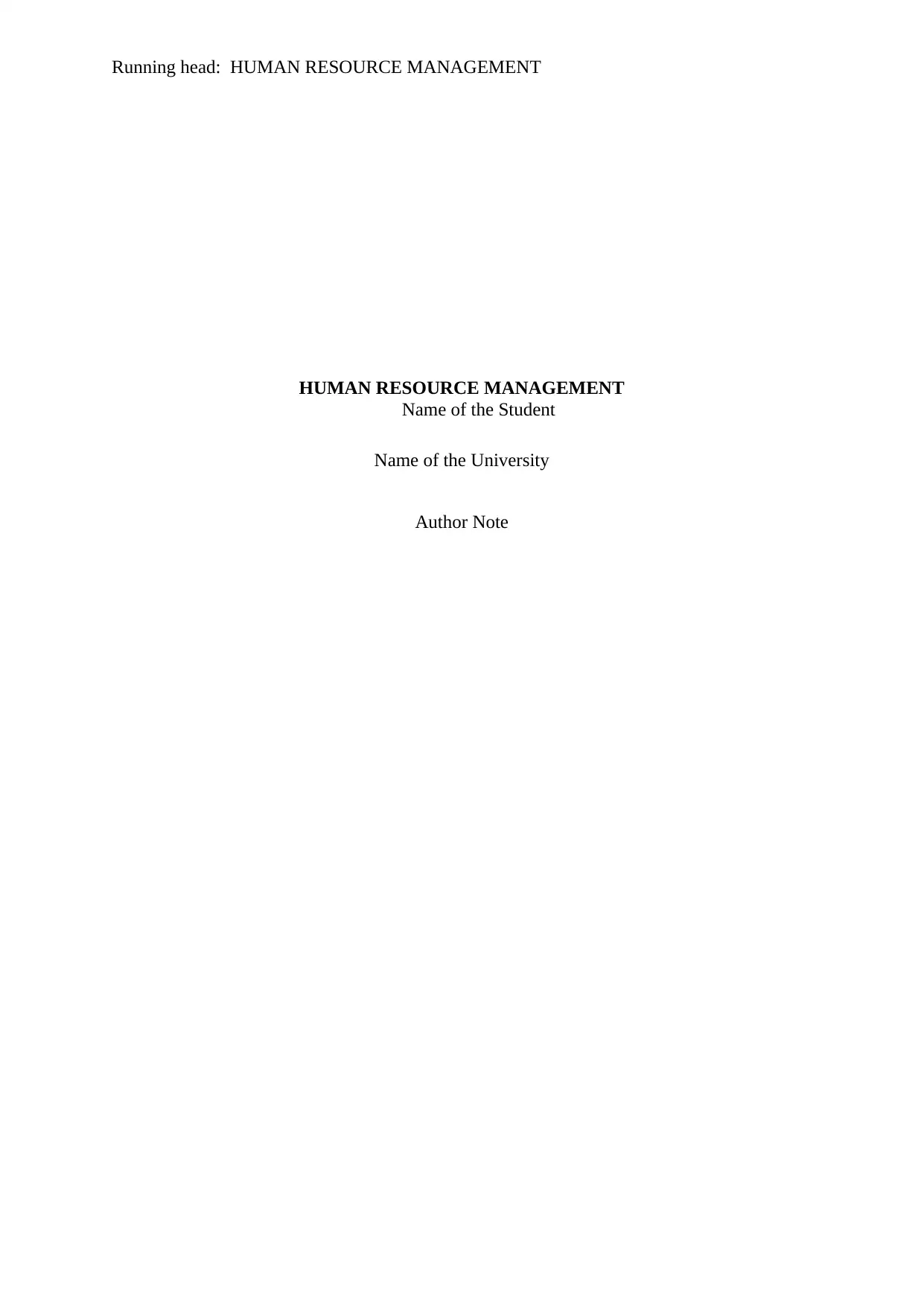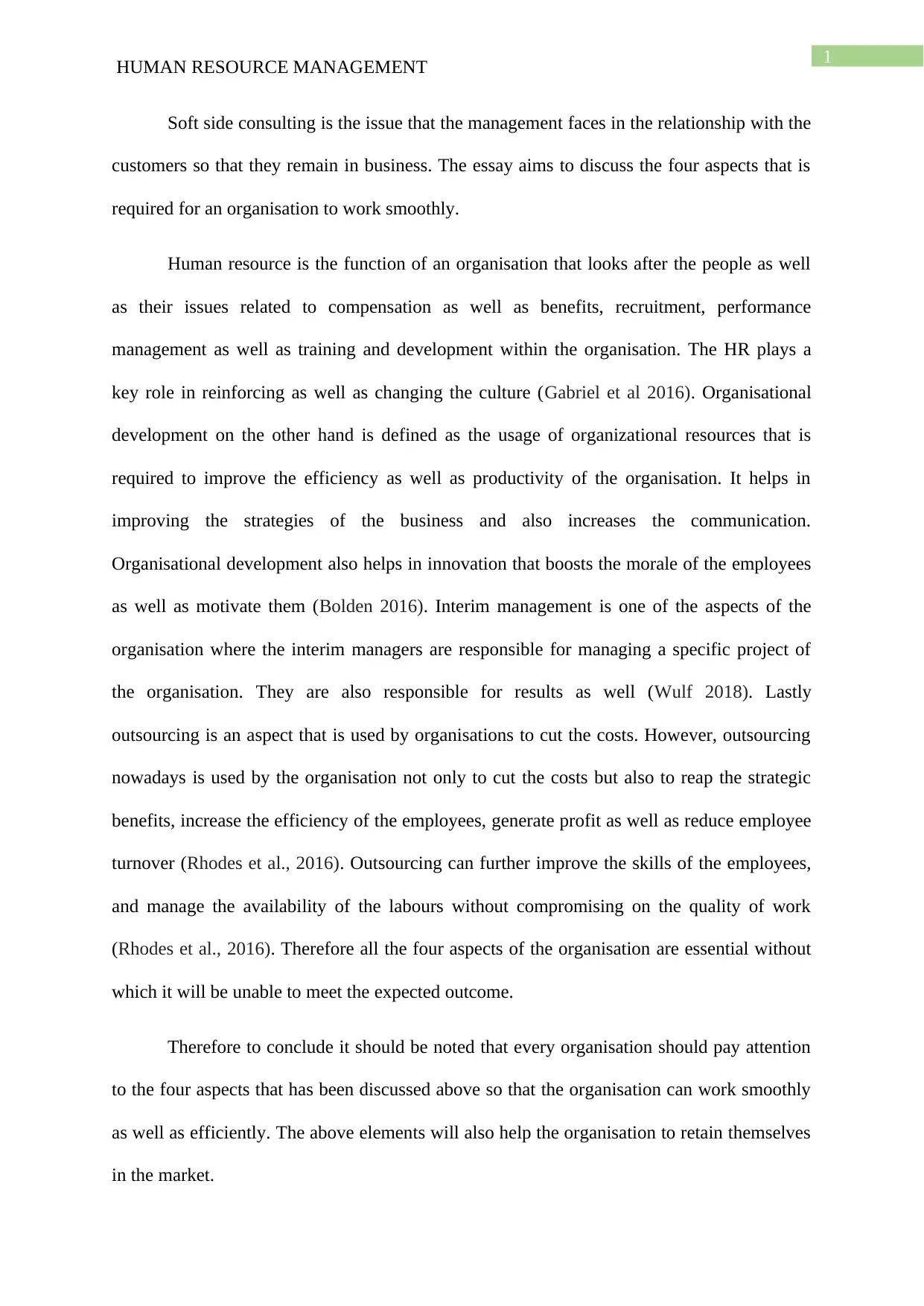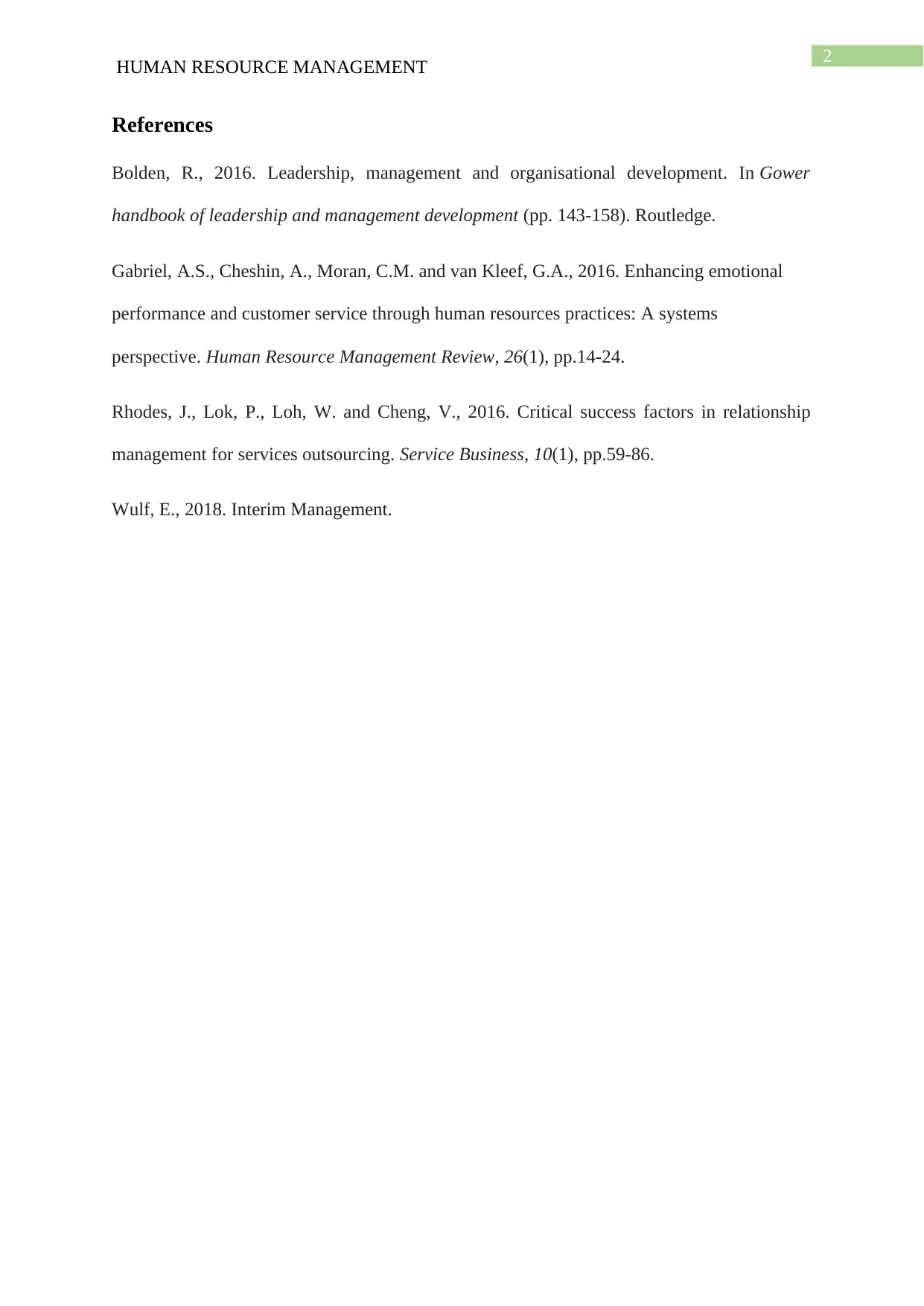Human Resource Management Report: Examining Organizational Strategies
VerifiedAdded on 2022/08/12
|3
|519
|13
Report
AI Summary
This report delves into the core aspects of Human Resource Management (HRM), crucial for organizational success. It examines the critical role of HRM in managing employees, compensation, and benefits, as well as its impact on shaping organizational culture. The report highlights the importance of organizational development in enhancing efficiency and productivity through strategic improvements and employee motivation. Furthermore, it explores interim management, where managers handle specific projects, and the strategic benefits of outsourcing, including cost reduction, increased efficiency, and improved employee skills. By analyzing these four key elements, the report emphasizes how organizations can work smoothly and effectively to achieve their goals and maintain a competitive edge in the market. This comprehensive analysis underscores the interconnectedness of these aspects and their collective contribution to overall organizational performance.
1 out of 3










![[object Object]](/_next/static/media/star-bottom.7253800d.svg)